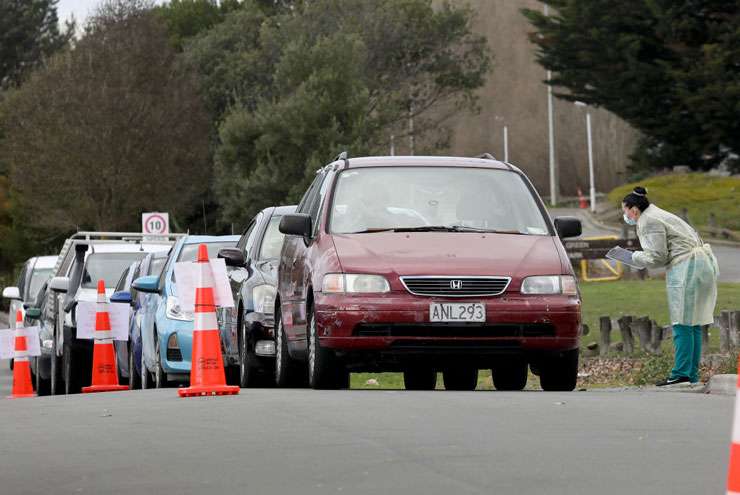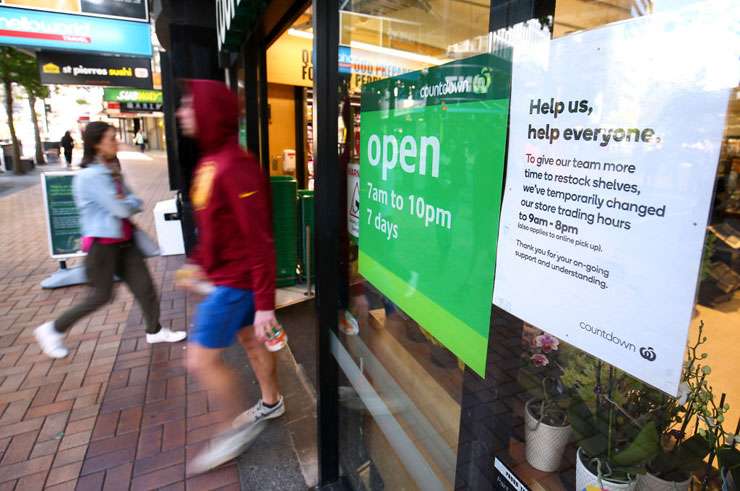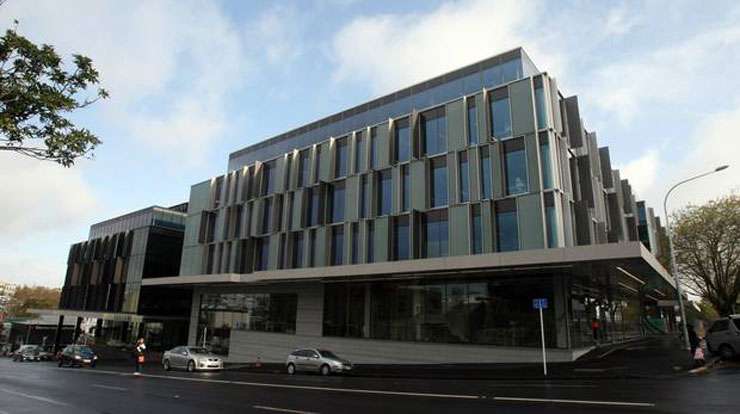Inquiries by foreign investors looking at New Zealand commercial property are up by at least 50 per cent since Covid-19 hit the world, says Todd Lauchlan, JLL NZ’s managing director.
Big institutions - including sovereign wealth funds, large pension funds, insurance companies, real estate investment trusts and private equity - are attracted more than ever by the country’s safe haven image.
“New Zealand’s the clean, green, sustainable and transparent location to invest in and I think that’s becoming more apparent now than it’s probably ever been.”
JLL’s global transparency index puts New Zealand as the sixth most transparent market in the world, he says.
Start your property search
“Investors look at that and think it’s a good place to preserve their capital and that’s been a great, positive thing for the country. We’ve had a lot of investment that’s ultimately led to new projects and generated a lot of employment and ultimately opportunity to people.”
There are barriers, however, for new investors. The foreign buyer ban is one, not so much from an approval point of view, as Lauchlan says most can get that through, but when considering the next tier down.
“You want to sell the product and you can only sell it to locals or residents; you can’t sell it to non-residents because of the changes in the residential property laws of 2018,” he says.
Great place to invest
“We’ve got clients looking to invest in the country, large projects, to develop high-end tourist facilities and locate them close to places like ski fields and lakes and places where they could do high-end recreational tourism, but the intention would be the developer would make money out of selling villas in this development and at the moment the restriction with the overseas act means they can’t basically do that.”
The would-be investors, who are not proceeding, are a joint venture between a “very large American group and a very large Asian group” with successful projects across North America and some in South East Asia.
The general feeling from foreign investors, however, is New Zealand is still a great place to invest.

Kiwis queue for testing. New Zealand’s success in battling Covid-19 both at the start of the year and now is seen as a plus. Photo / Getty Images
New Zealand commercial property is considered a safe prospect providing solid returns, Lauchlan says, and while anyone investing in property at the moment has some uncertainty because of Covid, most people see this country as having dealt with the pandemic well.
There are always risks, he says. In the United Kingdom councils, for example, have shown how institutional investment can go wrong.
The Guardian newspaper reported councils are now shedding jobs and services as multibillion-pound holdings in office blocks, retail parks, airports and cinemas have been badly hit by the pandemic.
But Lauchlan says there’s a difference between private investors taking the risk when buying real estate and councils taking the risk on behalf of ratepayers.
“Some ratepayers would say, ‘I don’t want you investing in real estate, I just want you focusing on the services to the city’. There’s a whole philosophical debate about that,” he says.
“I think most investors, big or small, coming into New Zealand would expect there’s risk attached to what their investing in and, like everyone, they’re looking for the lowest risk and the highest return.”
Aussie eyes on hardware
On a risk adjusted basis, New Zealand is transparent with an economy that had been growing well. Returns vary according to the holding period, asset class and location and while the figures don’t equate to the same huge sums investors may pump into big cities like Hong Kong or Singapore, percentage returns can be similar and in some cases higher.
“A lot of it depends on how much money is chasing property, that’s what drives the pricing. They key point is most of the large global investors will spread their money around multiple geographies and multiple asset classes to try to give them a reasonably diversified portfolio,” Lauchlan says.
“I think New Zealand’s probably got a chance of capturing more of that sort of market share, that investment dollar, than a lot of other countries because it’s coming through Covid better and it’s perceived to be a bit safer.

Shoppers at Countdown supermarket in Auckland. Supermarkets are viewed as safe investments right now. Photo / Getty Images
“From private family offices all the way through to our normal institutions, we’ve got a lot more inquiry than we’ve ever had and we’ve been surprised by that. They’re from right across the world, from Europe, the United Kingdom, Mainland China, the Asia Pacific, America and Canada.”
A lot look at industrial property, supermarkets and essential services, and Lauchlan says JLL has Australian clients looking to invest in hardware stores. “You could almost guess if it’s tourism related it’s probably struggling and if it’s essential services it’s probably doing pretty well,” he says.
While New Zealand is, investment-wise, more like a state of Australia than the country itself, there are significant differences between the two, like not having to pay Stamp Duty.
“Our tightening system is very clear, our sale and purchase of property rules are very clear, the enforceability of contracts if things all go wrong lease contracts and sale contracts are all very clear and the court system functions very well,” he says.
Room for everyone
New Zealand also has a stable political situation and predictable economic, tax and investment regimes, he says. “I think all those things come into it but at the end of the day it’s first and foremost capital will chase return and then they’ll look at the risk attached to that and price it accordingly.”
Foreign investors are a vital cog in the economic wheel, Lauchlan points out.
“Even in the sharemarket a lot of our larger listed companies have got large equity investors coming from overseas. A lot of our corporates, the big tech companies, banks or the insurance companies, are all a mix of local and foreign ownership so I guess it’s such an intertwined part of our economy.”
And if we didn’t have foreign insurance companies, Christchurch may not have fared well after the earthquakes, he says. “A lot of the big insurance companies have put their risk across insurance markets globally and when the earthquakes happened and all that money came in most of it would have been from overseas.”
Overseas investors don’t squeeze out New Zealand institutional investors, he says: “I think you’ll find there’s room for everyone.”
Ian Little, associate director of research for Colliers, says New Zealand is much more on the international investment map than it was five or six years ago and he, too, points to the safe haven reputation.
“That was happening pre-Coivd anyway. The returns on investment property in New Zealand have remained comparatively attractive compared to some of the more established markets around the world, so property is seen as still being good value here in New Zealand so that’s obviously a big factor for overseas funds,” he says.
Shopping for office space
The larger office and industrial properties attract the larger overseas property funds, he says.
One issue for entities is not being able to send representatives here to view properties as easily as before, but the overall outlook is healthy.
“I there is clearly uncertainty around with regards to how economies are going to rebound post-Covid and how long that recovery is going to take so that will obviously flow into their due diligence and their decisions around making purchases,” Little says.
But low interest rates are being cemented in and central banks and Governments are looking to boost their economies by putting plenty of money into the system. “With interest rates falling people are clearly looking for high yield assets in order to generate returns and commercial property has been one of the favoured vehicles for that,” he says.
Ryan Johnson, Bayleys national director of commercial and industrial, says he has regular calls with clients from Australia and Singapore, two of the more traditional sources of foreign capital.

Spark’s offices in central Auckland. In 2012, the building, then operating under the Telecom name, was reportedly sold to a German investor for $280m. Photo / New Zealand Herald
Bayleys is selling the Countdown supermarket portfolio, which is circa $50 million, and there is interest from offshore parties, he says.
Of the commercial properties in the $20 million-plus price range, around 40 per cent is sold to foreign investors, and office dominates. “Close to 50 percent of those buyers bought office buildings and then the rest is split between retail and a smaller amount of industrial,” Johnson says.
“With the uncertainty around Covid and occupancy and rentals in those office buildings, they’re a bit more cautious, but for something like industrial or a supermarket they still are interested in those properties.”
What Bayleys is seeing strongly at the moment is a big uplift in ultra-high net wealth private individuals looking to invest, he says. “They’re looking for residency, they want to invest here and that’s all part of New Zealand’s appeal as a stable geopolitical and health-related safe haven.”
Johnson won’t name names, but back in 2012 German private investor Farhad Vladi reportedly paid nearly $280 million for the Telecom office complex – now the Spark building - in central Auckland.
All Johnson will say is that some of the private investors are “quite phenomenal” and points out Bayleys’ global partner, Knight Frank, has a database of 4000 ultra-high net wealth billionaires.
Other institutions find New Zealand attractive from a tax perspective but the bigger reason they buy in New Zealand is because it is part of a geographic asset allocation to their Asia funds, he says.


















































































